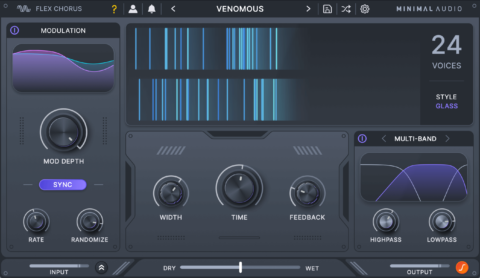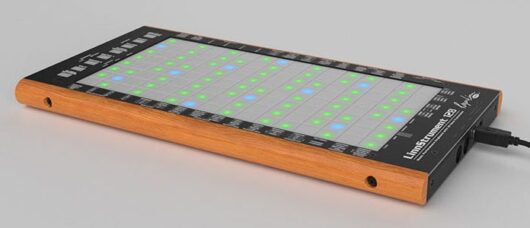Minimal Audio Releases Flex Chorus a 24-voice, Multi-band Chorus Plugin With 2 Unique Modes
Flex Chorus is capable of producing everything from scene-stealing unison effects to subtle stereo enhancement.
Minimal Audio, maker of the Rift distortion plugin and Current soft synth, has announced its latest plugin release. Flex Chorus is a multi-band chorus effect that Minimal says is capable of producing everything from “massive unison effects to stereo enhancement”.

Flex Chorus offers up to 24 voices and two distinct modes based on unique algorithms: Glass mode utilizes a multi-stage approach to create a “clean and modern” chorus effect with resonator-like feedback, while Smooth mode is aimed at applying a classic style of smooth and deep modulation.
Controls for delay time, feedback amount and stereo width can be found in the centre of the UI, beneath the plugin’s visualizer. On the left-hand side you’ll find a modulation panel, where you can control the plugin’s LFO via dials for depth, rate and randomization.
Equipped with high and low-pass filters, Flex Chorus can apply its effect to a chosen portion of the frequency spectrum through its multi-band function, which is found on the right-hand side of the interface.
At the bottom of the interface you’ll sliders for input and output gain and overall mix, allowing you to dial in as much or as little chorus as you’d like to your source signal.
Flex Chorus Walkthrough:
At an introductory price of $29, Flex looks like a solid chorus plugin that would make a decent replacement for your DAW’s stock alternative, if you’re looking to upgrade to something a bit more versatile.
Flex Chorus is compatible with macOS and Windows and is available in VST/VST3/AU/AAX formats. Find out more on Minimal Audio website.




